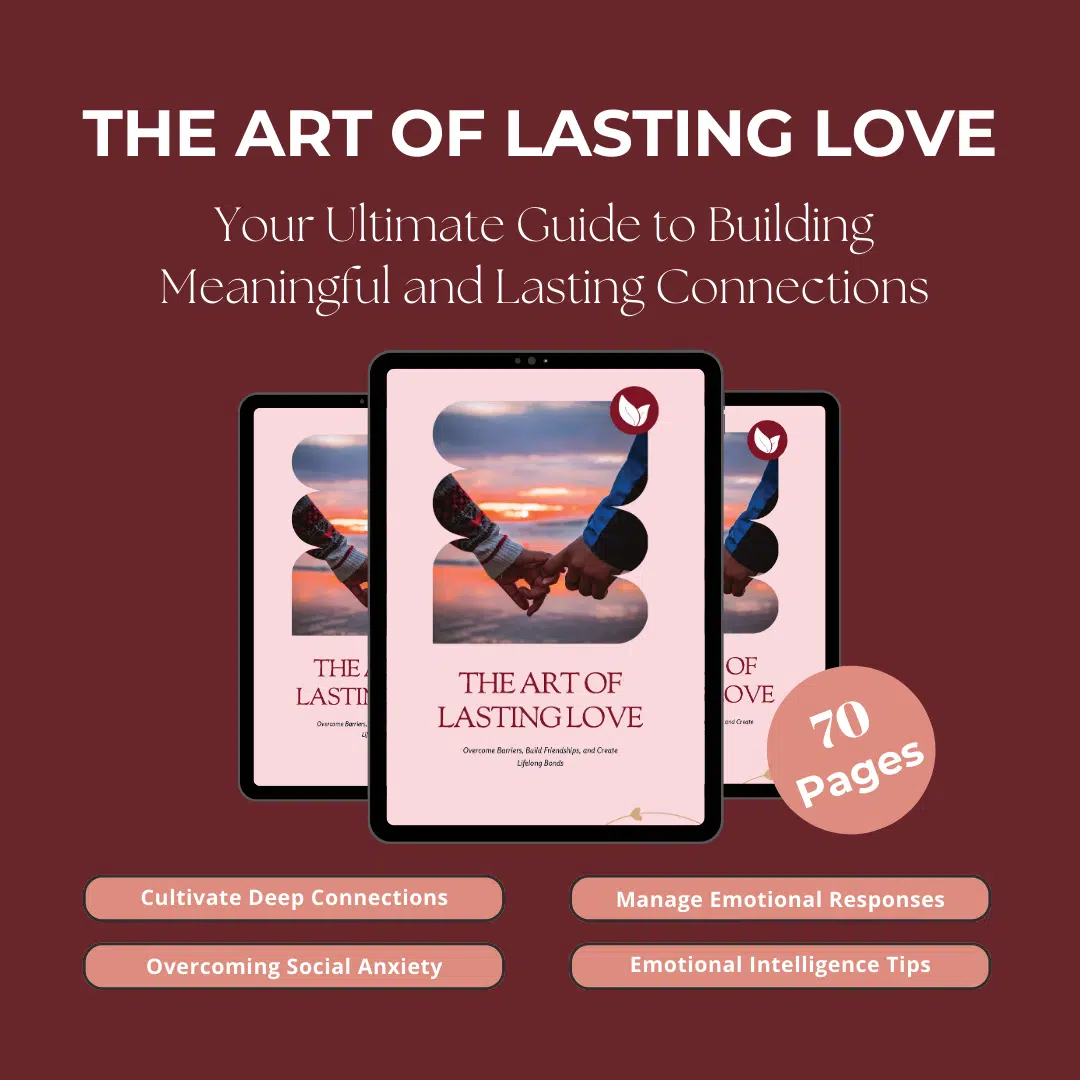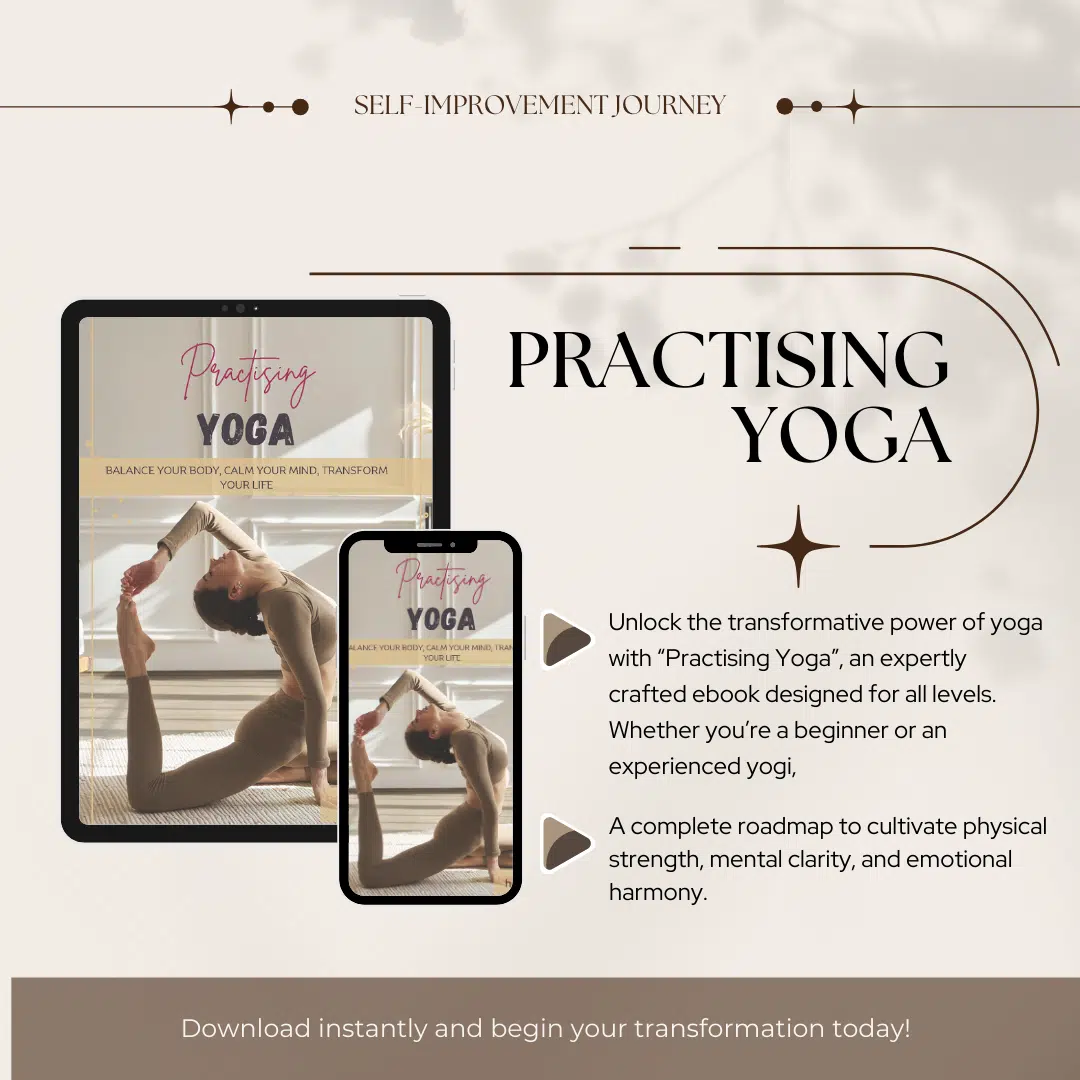Why Am I Still Tired After 8 Hours Of Sleep? A question that is always heard around. Ever crawl out of bed after a seemingly good night’s sleep, only to feel like you could use another eight hours?
Millions of people struggle with this sleep disorder and daytime fatigue despite clocking in the recommended eight hours of sleep per night.
Sleep is essential for our physical and mental well-being. When we don’t get enough quality sleep, we experience a cascade of negative effects. Our cognitive function suffers, making it difficult to concentrate and learn.
Our mood takes a dip, increasing our risk of irritability and anxiety. Long-term sleep deprivation is even linked to chronic health problems like heart disease and diabetes.
But what if you’re hitting the hay for eight hours each night and still feel like a slug in the morning? The question remains: Why do we feel tired after getting enough sleep? This guide will explore the reasons behind daytime fatigue and present the solutions to help you wake up feeling refreshed and energized.
Recommended Sleep Time
A study published in the Journal of Clinical Sleep Medicine highlights the importance of adults aged 18 to 60 years obtaining 7 or more hours of sleep per night consistently to optimize health.
However, it’s crucial to recognize that individual sleep needs can vary due to factors such as genetics, behavior, medical conditions, and environmental influences.
Why Am I Still Tired After 8 Hours Of Sleep? Reasons
People are searching around for the answer “Why am I still tired after 8 hours of sleep?”. The culprit might be lurking beneath the surface of your seemingly sufficient sleep.
According to the American Academy of Sleep Medicine, roughly 30% of adults in the United States experience short-term insomnia symptoms. Additionally, studies suggest that close to 14% of adults might have sleep apnea. If you suspect a sleep disorder might be impacting your sleep quality, don’t hesitate to reach out to a healthcare professional for proper diagnosis and treatment.
Here, we explore some common reasons why sleep quality, not necessarily quantity, might be the hidden factor behind your daytime fatigue.
1-Sleep Apnea
This condition disrupts your breathing throughout the night, causing you to wake up briefly and repeatedly, often without even realizing it. These frequent micro-awakenings leave you feeling fragmented and unrefreshed in the morning, even if you haven’t consciously woken up.
Research published in the highly reputed medical science database PubMed has also highlighted that snoring and daytime drowsiness stand out as prevalent indicators among individuals with sleep apnea. Additionally, obstructive sleep apnea (OSA) has been linked to diminished focus, decreased productivity, and an increased risk of workplace or road accidents. Explore this research more here.
2-Insomnia
Insomnia is a sleep disorder characterized by difficulty falling asleep, staying asleep, or both, despite having the opportunity for adequate sleep. It can lead to daytime fatigue, irritability, difficulty concentrating, and impaired performance at work or school. Insomnia significantly reduces the therapeutic benefits of sleep.
Research published in PubMed has consistently shown that individuals suffering from insomnia experience a significant decrease in their quality of life across various dimensions measured by the 36-item Short Form Health Survey of the Medical Outcomes Study (SF-36). These dimensions include physical functioning, role limitation due to physical health problems (role physical), bodily pain, general health perceptions, vitality, and social functioning.
3-Restless Leg Syndrome (RLS)
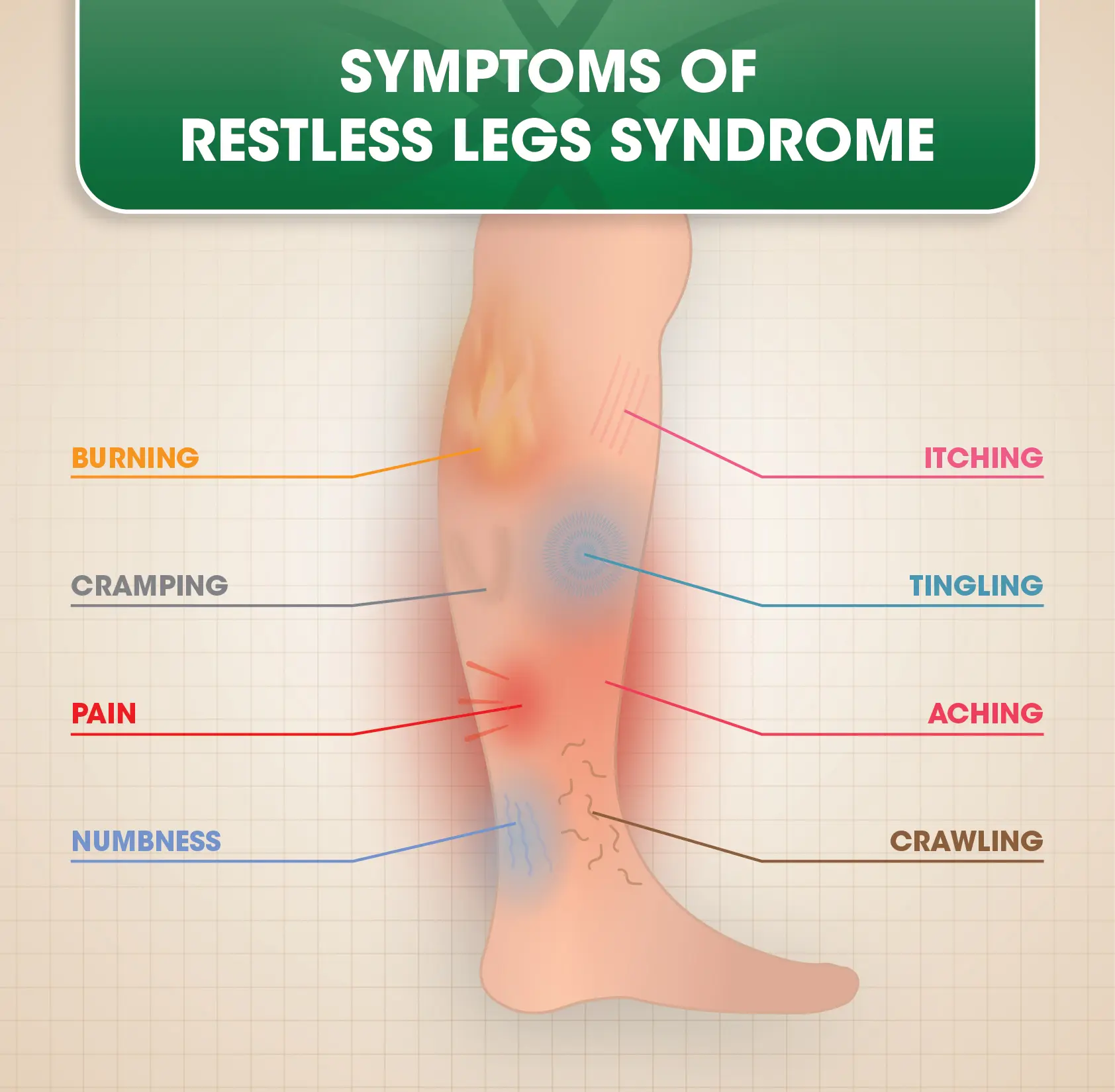
This neurological disorder causes an irresistible urge to move your legs, especially at night. The constant need to fidget disrupts sleep and makes it difficult to get comfortable, leading to daytime fatigue.
4-Sleep Fragmentation
Interrupted sleep patterns, where you wake up multiple times throughout the night, can prevent you from reaching deeper, more restorative stages of sleep, leaving you waking up fatigued.
Research confirms that sleep fragmentation not only affects the continuity of sleep, even when total sleep time remains intact but also disrupts sleep architecture, leading to subjective feelings of fatigue and impaired performance.
5-Sleep Debt
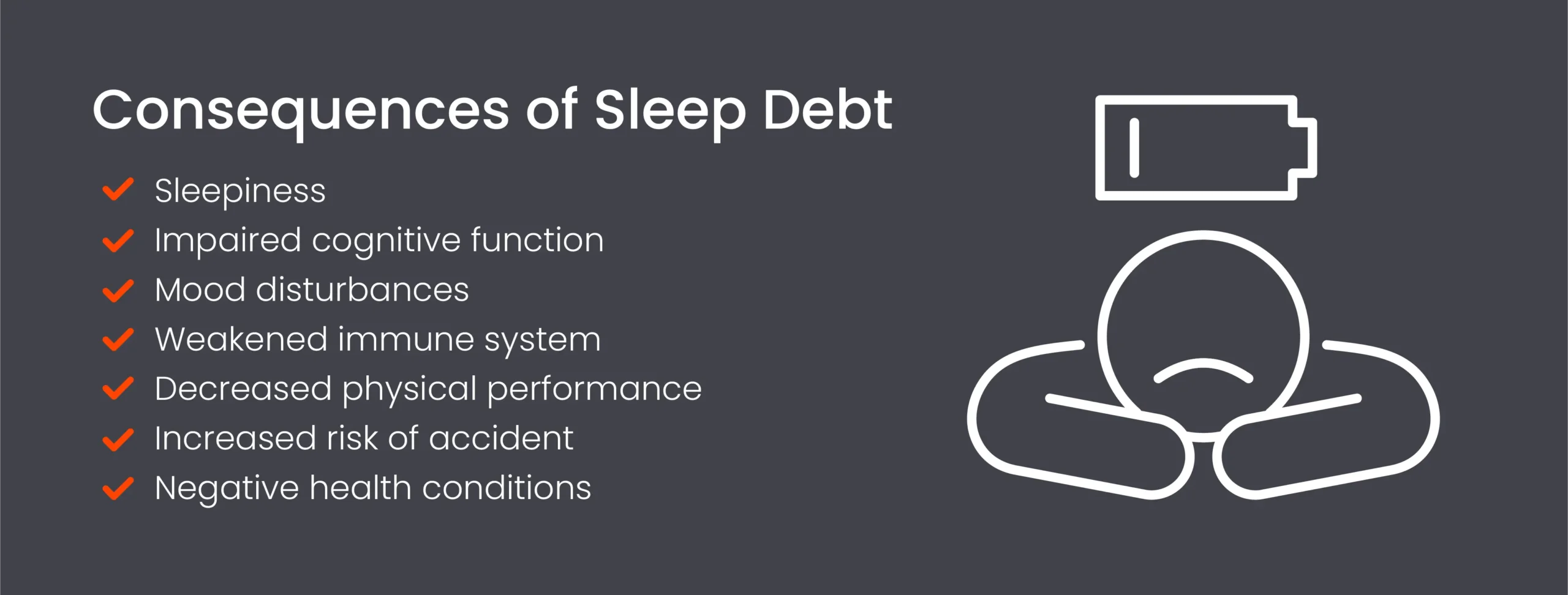
Accumulated sleep debt from previous nights of insufficient sleep can persist, even after a full night’s rest, resulting in ongoing feelings of tiredness. The research paper published on PubMed discussed that Sleep debt undermines our capacity to make sound decisions, manage stress effectively, and regulate our emotions.
6-Medical Conditions
Several medical conditions can affect sleep patterns and contribute to sleep disorders. Here are some common examples:
- Narcolepsy: Narcolepsy is a neurological disorder characterized by excessive daytime sleepiness, sudden muscle weakness or paralysis (cataplexy), hallucinations, and disrupted nighttime sleep.
- Periodic Limb Movement Disorder (PLMD): PLMD involves repetitive movements, such as leg twitching or jerking, during sleep, leading to frequent arousals and fragmented sleep.
- Chronic Pain Conditions: Conditions like arthritis, fibromyalgia, or chronic back pain can cause discomfort or pain, making it difficult to fall asleep or stay asleep.
- Gastroesophageal Reflux Disease (GERD): GERD, characterized by acid reflux and heartburn, can worsen at night, leading to discomfort that disrupts sleep.
- Mental Health Disorders: Conditions like depression, anxiety, post-traumatic stress disorder (PTSD), or bipolar disorder can affect sleep patterns, leading to insomnia, hypersomnia, or disrupted sleep.
- Neurological Disorders: Neurological conditions such as Parkinson’s disease, Alzheimer’s disease, or Huntington’s disease can disrupt sleep architecture and contribute to sleep disturbances.
- Hormonal Imbalances: Changes in hormone levels, such as those occurring during pregnancy, menopause, or conditions like thyroid disorders, can affect sleep patterns and quality.
- Respiratory Conditions: Chronic respiratory conditions like asthma, chronic obstructive pulmonary disease (COPD), or allergies can lead to breathing difficulties during sleep, contributing to sleep fragmentation and poor sleep quality.
- Cardiovascular Disorders: Conditions such as heart failure or hypertension can disrupt sleep patterns due to nocturnal symptoms, like shortness of breath, chest pain, or nocturia (frequent nighttime urination).
7-Poor Sleep Hygiene
Factors such as excessive caffeine or alcohol consumption before bedtime, or engaging in stimulating activities close to bedtime can disrupt sleep patterns and lead to daytime fatigue.
8-Stress and Anxiety
Mental health issues like stress, anxiety, or depression can interfere with sleep quality and quantity, leading to persistent feelings of tiredness even after a full night’s sleep.
9-Sedentary Lifestyle
Lack of physical activity or prolonged periods of sitting can contribute to feelings of fatigue by reducing circulation and energy levels, despite getting enough sleep. Sedentary social activities, such as gathering with friends or family indoors for meals or entertainment, may contribute to a lack of physical activity and impact sleep quality.
10-Desk Job
Spending long hours sitting at a desk or in front of a computer without breaks for physical activity can contribute to a sedentary lifestyle and negatively impact sleep quality.
11-Screen Time
Excessive screen time, such as watching TV, or using smartphones, tablets, or computers for extended periods, can disrupt the body’s natural sleep-wake cycle due to exposure to blue light and mental stimulation.
12-Driving or Commuting
Spending significant time sitting in a car or on public transportation during daily commutes can contribute to a sedentary lifestyle and may lead to sleep disturbances.
13-Working from Home
Remote work or telecommuting often involves prolonged periods of sitting, especially if there is limited opportunity to move around the home environment.
Socializing Indoors: Sedentary social activities, such as gathering with friends or family indoors for meals or entertainment, may contribute to a lack of physical activity and impact sleep quality.
14-Poor Diet
Nutritional deficiencies or consuming heavy, processed foods close to bedtime can affect digestion and disrupt sleep, leaving you tired after a nap.
The following foods can impact your sleep patterns when consumed irregularly:
- Spicy Foods: Spicy foods close to bedtime can cause indigestion and heartburn, making it uncomfortable to sleep.
- Heavy or Greasy Meals: Large, heavy meals high in fat can also lead to indigestion and discomfort, affecting the quality of your sleep.
- Sugary Foods: Foods high in sugar can cause fluctuations in blood sugar levels, leading to energy crashes and disruptions in sleep.
- Highly Processed Foods: Processed foods high in refined carbohydrates and additives can disrupt hormone levels and lead to poor sleep quality.
15-Circadian Rhythm Disruption (Shift workers’ schedules)
Disruptions to your body’s natural circadian rhythm, such as shift work, jet lag, or irregular sleep schedules, can interfere with the body’s internal clock and lead to feelings of fatigue at any time of day.
Craft Your Sleep Sanctuary-Get Rid of Sleep Disorder
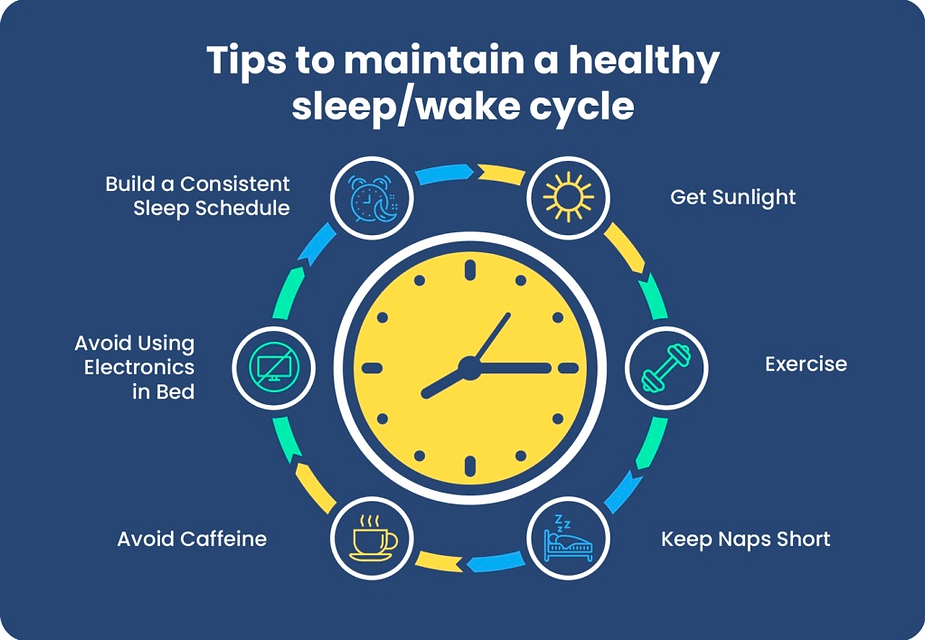
Just like a computer needs to shut down to function optimally, our bodies crave a designated wind-down period before sleep. A well-crafted bedtime routine signals to your body that it’s time to transition from alertness to sleepiness, promoting better sleep quality. Here are some tips to cultivate your own relaxing pre-sleep ritual:
Dim the Lights and Ditch the Screens
Light exposure, particularly the blue light emitted from electronic devices, suppresses melatonin production, the hormone that regulates sleep. In the hour or so leading up to bedtime, swap screen time for activities that promote relaxation. Dim the lights in your bedroom, or consider using blue light-blocking glasses.
Unwind with a Warm Bath or Shower
Taking a warm bath or shower about an hour or two before bed can act as a natural sleep aid. The gradual drop in body temperature after stepping out mimics the body’s natural cooling process that occurs during sleep, signaling to your brain it’s time to wind down.
Embrace the Power of Reading
Curling up with a good book is a classic relaxation technique for a reason. Reading fosters a sense of calm and can gently distract you from daily worries, easing your mind into a sleep-ready state.
Practice Relaxation Techniques
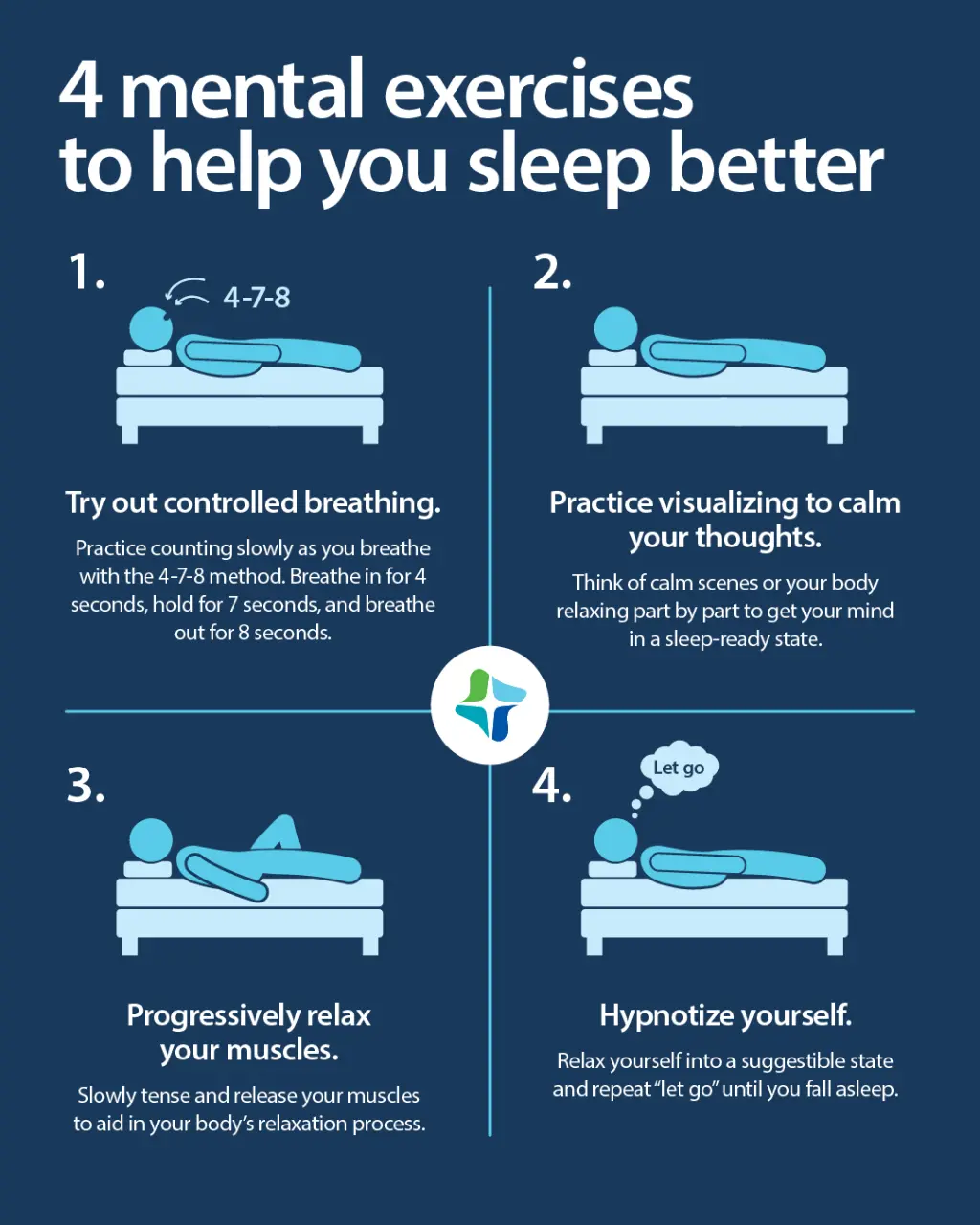
Techniques like deep breathing exercises, progressive muscle relaxation, and meditation can effectively reduce stress and prepare your body for sleep. There are many free guided meditations available online or through apps to help you get started.
Create a Sleep-Conducive Environment
-
Make sure your bedroom is a haven for sleep. Aim for a cool, dark, and quiet space.
-
Invest in blackout curtains to block out light.
-
Noise distractions can disrupt sleep throughout the night. If you live in a noisy environment, consider using earplugs or a white noise machine to mask unwanted sounds.
Cool It Down
The ideal sleep temperature falls between 60 and 67 degrees Fahrenheit (15.5 to 19.5 degrees Celsius). A cool environment promotes better sleep by allowing your body temperature to drop naturally during the night. Adjust your thermostat accordingly, or consider using lightweight bedding during warmer months.
Declutter for Serenity
A cluttered bedroom can create a sense of visual busyness and stress, making it harder to wind down. De-clutter your sleep space, minimize distractions, and ensure a clean and organized environment conducive to relaxation.
Invest in Your Comfort
Your mattress and pillows play a crucial role in sleep quality. A comfortable mattress that provides proper back support is essential. Consider your sleep style (back, side, stomach sleeper) when choosing a mattress and pillows that suit your individual needs.
Cultivating Good Sleep Habits – The Power of Sleep Hygiene
Sleep hygiene refers to a set of practices that can help you fall asleep more easily, sleep soundly through the night, and wake up feeling refreshed. By incorporating good sleep hygiene habits into your daily routine, you can significantly improve your overall sleep quality.
Here are some key sleep hygiene practices to embrace for better sleep:
Develop a Consistent Sleep Schedule To Avoid Sleep Disruption
Aim to go to bed and wake up at the same time each day, even on weekends. This scheduled sleep practice helps regulate your body’s natural sleep-wake cycle, making it easier to fall asleep and wake up feeling rested.
Nix the Nighttime Caffeine and Alcohol
While a cup of coffee might give you a morning pick-me-up, caffeine can act as a stimulant and disrupt your sleep later in the day, especially if consumed close to bedtime. Similarly, alcohol may initially make you feel drowsy, but it disrupts sleep patterns throughout the night, leading to fragmented sleep and daytime fatigue.
Embrace Regular Exercise
Physical activity is a powerful tool for promoting better sleep. Aim for at least 30 minutes of moderate-intensity exercise most days of the week, but avoid strenuous workouts close to bedtime. Exercise helps you fall asleep faster and sleep more soundly.
Manage Stress Effectively
Chronic stress can wreak havoc on your sleep. Techniques like meditation, deep breathing exercises, and progressive muscle relaxation can help reduce stress and promote better sleep.
Conclusion
We all know the feeling: that groggy drag even after a seemingly sufficient night’s sleep and made you questioned “Why Am I Still Tired After 8 Hours Of Sleep”. But as we’ve explored, quantity doesn’t always equal quality when it comes to sleep.
Sleep is a vital component of overall health, influenced by a complex interplay of sleep debt, sleep hygiene, and insomnia. Insufficient sleep, or sleep debt, accumulates over time, disrupting bodily functions and cognitive abilities. Establishing consistent sleep hygiene practices, such as maintaining a regular sleep schedule and creating a conducive sleep environment, is crucial for combating sleep debt and preventing insomnia.
A healthcare professional can diagnose any underlying conditions like sleep apnea or insomnia that might be contributing to your sleep difficulties. They can also recommend tailored treatment plans, which may include medication, cognitive behavioral therapy for insomnia (CBT-I), or other therapies to address the root cause of your sleep problems.
Take Action Today!
Start by making small changes to your daily routine and sleep environment. Remember, consistency is key! The more you prioritize good sleep hygiene, the more your body will naturally adjust to a healthy sleep pattern.
So ditch the daytime drag and embrace the power of quality sleep. A good night’s rest is just a few adjustments away – and a healthier, more energized you awaits!











